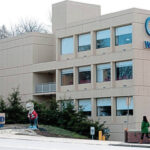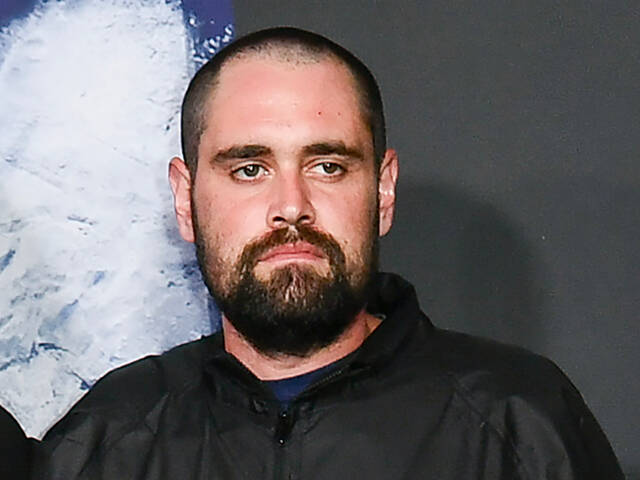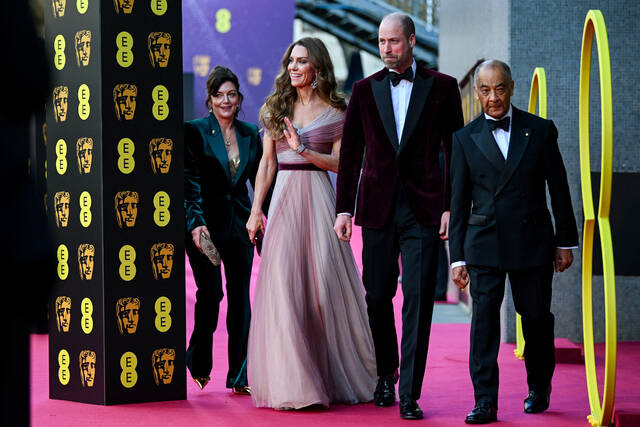It’s been six months since Jason Jedlinski took over as president of WQED Multimedia, so I wanted to check in on what he’s learned so far, where things stand regarding the station’s spate of technical hiccups and what’s on the horizon regarding local linear TV programming.
But first, some news: Jedlinski said WQED is likely to move out of its long-time Oakland headquarters “sooner rather than later.”
WQED has rented from CMU (for $1 per year, prepaid with a $99 check) since the building opened in 1970. CMU owns the land, and WQED owns the building.
“CMU is very keen to get that space back as their needs continue to expand and grow. I can’t imagine it would happen in nine months, but I would be surprised if we were still there two years from now,” Jedlinski said.
Already, CMU rents Studio A (The Fred Rogers Studio) as a performance space with WQED utilizing just Studio C for pledge and cooking shows. (Studio B has been rented out for several years.)
“All due deference to the magic that happened in that room,” Jedlinski said of the spaces where Rogers filmed “Mister Rogers’ Neighborhood,” “I think the innovative founders of WQED, as a predecessor to PBS, created something that didn’t exist — a community-supported educational TV station – and it’s consistent with that spirit of innovation and change for us to take a gift from CMU in terms of ending our lease and find a more modern space that suits our needs.”
The plan is for WQED to likely rent space – public transit and accessibility are key, Jedlinski said — for a new WQED headquarters somewhere in the broader East End quadrant of the city rather than constructing its own building.
“I’ve been shown renderings of what a $50 million campus would look like but I don’t think that is in the cards,” he said. “The market is very favorable for rentals.”
On the more immediate technical side, Jedlinski said managing director of engineering and technology Robert Bowe has instituted multiple improvements on the station’s bedeviled automated master control system that can sometimes play the wrong program or switch to dead air. Jedlinski noted that the root cause of on-air programming blunders is different each time.
“We don’t shoot ourselves in the foot the same way,” Jedlinski said. “It’s not the same thing that trips us up.”
The station has had an automated master control for several years and Jedlinski said he hasn’t ruled out outsourcing master control to a company in Syracuse, N.Y., that runs automated master controls for several PBS stations and also has humans on hand to handle technical issues when they arise (if that were to happen, Jedlinski said there would be no reduction in staff at WQED). There’s also the possibility of WQED’s system getting an in-house software upgrade.
Regarding the station’s signal, which had to reduce power in August, Jedlinski said Bowe found a way to increase the station’s power if a Christian broadcast station 125 miles west of Pittsburgh (at a 1.3% risk of interference) and the FCC sign off on a plan to boost the power of WQED’s signal.
On the programming side, I’ve been concerned about the future of local shows on Channel 13 since Jedlinski said at the annual meeting in October that WQED must go from “creating content for our audiences to creating content with our communities,” and later, “What might we do with our platforms, our voices, our tools, our equipment to help you tell your own story?”
WQED has a storied history of award-winning programs from its own staff – Rick Sebak, Beth Dolinar, Dave Forstate, Frank Caloiero, the former “On Q” staff, Darryl Ford Williams, Deborah Acklin – so talk of outsourcing storytelling makes me uneasy, especially in light of the recent retirement of vice president of production and programming David Solomon.
Jedlinski said efforts to partner with community groups on programs and experiences, including on PBS’s upcoming program “Gospel,” (see “community events” at wqed.org/gospel and a live in-person event locally this spring with Baratunde Thurston; PBS’s “America Outdoors”) will not replace local linear TV programming.
“We’re not going to defund or cut that back,” Jedlinski said. “The other things we are talking about are additive — on top of — not replacing what Minette [Seate] and team do in docu-series and things of that nature.”
Seate is stepping into Solomon’s role as managing director of local production and programming. Producer Beth Dolinar is finishing a documentary, “Beyond the Canvas — The Carnegie International” (8 p.m. Feb. 1, WQED-TV), and a film on The Children’s Institute.
Jedlinski said the station won’t enter the Mid-Atlantic Emmy race anymore (“I respect the peer recognition that comes from those awards and I’d never tell anyone not to enter, but I don’t know that’s what I would hang my hat on,” he said). Entering the regional Emmys is something other Pittsburgh TV stations have also stepped into and out of over the decades as well. He said individual staffers will be welcome to submit their work.
And Jedlinski ruled out the return of a regularly scheduled studio program like “On Q,” which aired on WQED from 2000 to 2010, noting that WTTW-TV in Chicago recently made cuts to a long-running studio-based show there citing labor and production costs.
Jedlinski said the intention is to still have studio space wherever WQED ends up after it departs its current digs in Oakland. Just before Christmas, Chris Fennimore was at WQED to tape a new cooking show, “Gadgets and Gizmos” (10 a.m. and 12 p.m. Feb. 24), his first since 2022’s “When in Rome.” “Gadgets,” airing as a pledge program, features air fryer and instant pot recipes.
Jedlinski anticipates airing a new Rick Sebak local TV show sometime this year – Sebak’s most recent program was the November 2023 “Pittsburgh History Series” half-hour show, “It is a Joy: WQED-FM is 50 Years Old,” which the station did little to promote off-air beyond social media posts – and in April the station will pilot a possible new digital series, “Rooted in Pittsburgh,” created and hosted by Boaz Frankel (“Pittsburgh Today Live”) about Western Pennsylvania’s “leafy” history.
Regarding the possibility of additive content that might be community-produced for digital distribution (possibly through WQED’s Film Academy or something themed to civic literacy in partnership with a community organization), Jedlinski said some of it might air on linear TV, as “The Making of the Musical,” chronicling the production of Freeport Area High School’s “No, No, Nanette” musical did last month on WQED-TV’s “Filmmakers Corner,” but not all of it will. Jedlinski cited both schedule space – conforming to PBS’s common carriage allows only Thursday and Saturday for local shows to air in prime time – and a recognition that not all digital content will resonate with the older-skewing linear audience.
WQED’s digitally-produced content, including Joe Wos’ “Cartoon Academy,” can be viewed on TV sets via the PBS Passport app, available on many smart TVs and streaming devices (Roku, Fire TV, Chromecast, AndroidTV, Apple TV) with a minimum $60 annual contribution to WQED (or $5 monthly). Filter for “WQED shows” in Passport to find local content.
Adding to WQED’s digital portfolio makes sense, but one hopes it will also be additive and not at the expense of linear TV, which, while in an inexorable decline nationally, still has a pulse in Pittsburgh. If it didn’t, commercial stations would not be adding still more newscasts or local programs like KDKA-TV’s “Talk Pittsburgh.”
Behind the scenes at WQED there have been some changes since Jedlinski’s arrival, including the recently announced departure of CFO/COO Mike Waruszewski, who was interim co-chief operating officer with the also departed chief revenue officer Lilli Mosco, after Jedlinski’s predecessor, Deborah Acklin, stepped down due to health concerns. Director of human resources Jason Argenas also resigned. Jedlinski said these departures were not part of cost-cutting or downsizing efforts; the station created the position of finance director in September and is recruiting for a head of partnership solutions.
Jedlinski said in his first six months on the job he found there was more to be done on “a basic operations front” than he expected (those on-air technical glitches and the powered-down signal; customer service when it comes to returning calls and mailing pledge gifts) but, he said, “It’s nothing I’m not confident we can’t get ahead of.”
As for WQED’s strengths, Jedlinski said it’s the station’s brand and reputation.
“It is beloved no matter the age, whether it’s Mister Rogers or PBS Kids programming that’s newer, there’s an immediate affection and smile from people of all demographic backgrounds, that’s something that’s just consistent and genuine,” he said. “I expected as much and that’s definitely got to be our largest asset.”











